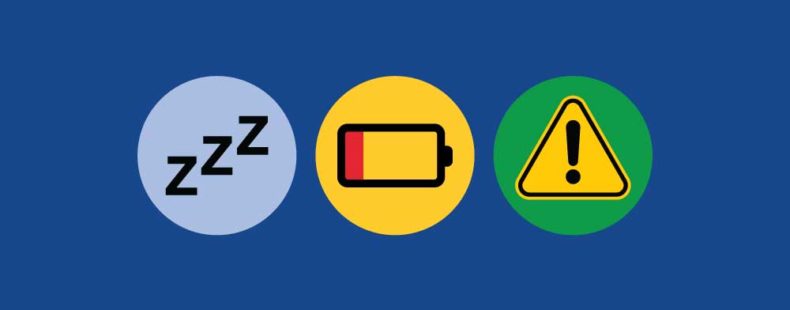Wary and weary are words that make us do a verbal double take.
Have you ever started out saying “I was wary of the situation,” pause, and think: “Wait, or was I weary of the situation?” We have!
There are several factors that contribute to the confusion between these two words. For one, both are adjectives often used to describe one’s feelings. For two, they are fairly similar in pronunciation and spelling. But perhaps the main reason these two words are often conflated has to do with wary‘s synonym: leery, which phonetically sounds very close to weary. That was a mouthful …
So, let’s dive in to see what the difference actually is.
What does wary mean?
The word wary is used as an adjective meaning that one is being “watchful or on one’s guard against danger.” For example: The mother was very wary of the group of teenagers huddling by the swing set. In this context, wary doesn’t necessarily confirm the reality of danger; it is speaking more to the fear of there being danger.
Wary can also mean “arising from or characterized by caution.” In this context the word would be used like: The mother shot the group of teenagers by the swing set a wary look.
What does weary mean?
Weary on the other hand is an adjective used to describe “a feeling of physical or mental exhaustion brought on by hard work or exertion.” For example: Her weary hands ached after hours of kneading dough.
And it can also be used to characterize the cause of fatigue, for instance: It was a long and weary road ahead. This descriptor can imply one’s impatience or dissatisfaction, too. For instance: He grew weary of her lies.
So, what’s the biggest difference? Weary can also be a verb (wearied, wearying). As a verb, weary means “to make or become weary; fatigue or tire” or “to grow impatient of.” For example, His boring story wearied the party guests.
Origin stories
Wary is first recorded in the mid-1500s. It is rooted in ware, an older adjective equivalent and related to aware.
Weary is recorded far earlier, in the 800s. It comes from Old English wērig, meaning the same as weary: “tired, fatigued, exhausted.” This adjective is related to an Old English verb wōrian, “to crumble, break down, totter.” Ever feel so tired you’re going to fall apart? Apparently that’s what weary is getting at, etymologically speaking.
So when it comes to distinguishing the two, don’t grow weary, just be wary of your intended use and you’ll be fine!














